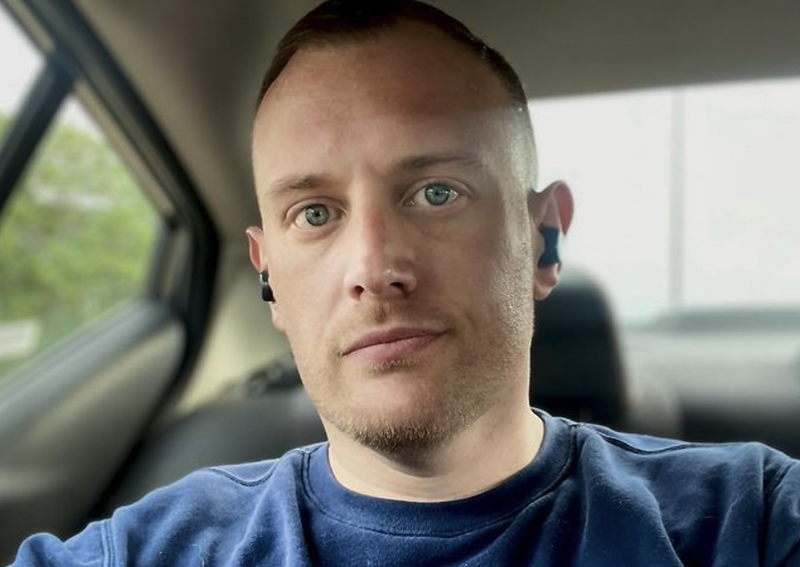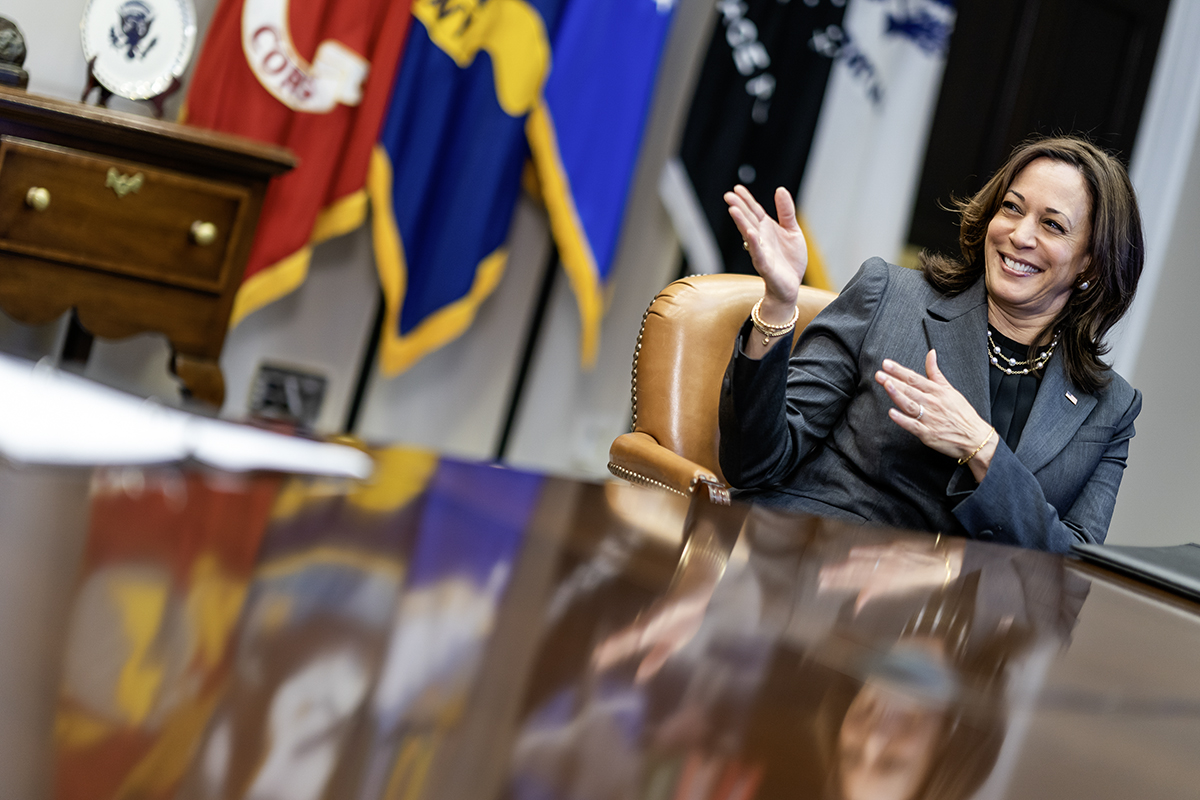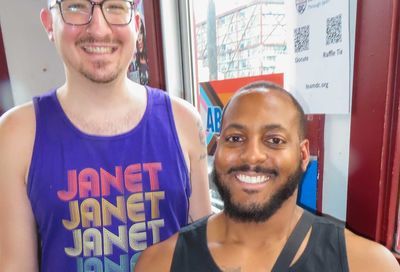5 LGBTQ questions we want asked at tonight’s vice presidential debate
Specific questions would force Kamala Harris and Mike Pence to be candid about their stances on LGBTQ issues

As we move closer to Election Day, it should become apparent that LGBTQ Americans’ rights are under attack, and will be affected by the outcome of this year’s presidential election.
With that in mind — and particularly with last week’s presidential debate being written off as a waste of time that neither informed nor assured Americans of the two major party candidates’ plan for the next four years — equality advocates have been demanding that moderator Susan Page raise a question about LGBTQ rights in the upcoming vice presidential debate in Salt Lake City on Wednesday.
“Our role is to inform and educate Americans about LGBTQ issues and people, and ensure the media’s accurate and respectful coverage of them,” the LGBTQ media advocacy organization GLAAD wrote in a letter to Page. “We are counting on you and your reputation as one of the most fair-minded and insightful political journalists to ask the questions yet to be raised. The records of Vice President [Mike] Pence and Senator [Kamala] Harris provide a unique opportunity to explore these topics and reveal more about the candidates’ views than we’ve seen thus far.”
The Human Rights Campaign, another chief LGBTQ organization, came up with a list of five questions it believes should be asked of both major-party vice presidential candidates: Here they are below:
1. What is your plan to protect the transgender community, particularly Black and brown trans women, from high levels of violence they face?
So far this year, 30 transgender and gender-nonconforming individuals have been killed, the majority of whom were transgender women of color, HRC noted in a news release. Given this epidemic of violence — and with death tolls surpassing last year’s number of trans people killed — LGBTQ advocates want to know how the next administration will combat such violence.
Because of anti-transgender discrimination in the workplace, many transgender people are often forced into the underground economy to make money to survive, often resorting to prostitution, selling drugs, or other illicit activities, to feed themselves and their families. As a result, advocates want Page to also ask: What plans the candidates have to ensure transgender people are not forced into the underground economy?
2. Do you believe marriage equality is absolute and should not be watered down or operate differently for straight or LGBTQ couples?
Earlier this week, Supreme Court Justices Clarence Thomas and Samuel Alito issued a dissent that effectively called for the nation’s highest court to revisit, and reverse, the landmark marriage equality decision in Obergefell v. Hodges. Coupled with concerns over the record and judicial philosophy of Trump nominee Amy Coney Barrett to fill the seat of the recently departed Ruth Bader Ginsburg, many advocates believe it is important to suss out the vice presidential candidates’ views on same-sex marriage, and their plans for dealing with the legal status of LGBTQ couples, and their families, if the high court does overturn its 2015 decision.
3. An estimated 65% of LGBTQ adults have pre-existing conditions, and for some that includes HIV. Why should the LGBTQ community — and LGBTQ communities of color — trust your leadership on health care?
Given the efforts by conservatives to repeal the Affordable Care Act — and the Trump administration’s efforts to support the overturn of the landmark health care law, it is important to examine how the lack of protections for pre-existing conditions, as well as the likely re-imposition of “lifetime limits” on coverage by insurance companies (which the ACA eliminated), would affect LGBTQ individuals, especially those with HIV.
This question could be especially telling for Vice President Pence, who has a less-than-stellar record dealing with HIV from his time as Indiana governor, was placed in charge of the administration’s task force to deal with the COVID-19 pandemic, and is likely to be knowledgeable of the administration’s push to eliminate LGBTQ nondiscrimination protections from the Affordable Care Act.

4. President Trump has called himself the “most pro-gay president in history.” Do you consider yourself an ally to the LGBTQ community, and how can you make that case?
This question seems primarily geared for Pence, who, if he answers such a question, would have to explain how the administration’s track record over time of attacking or seeking to roll back LGBTQ rights or representation of LGBTQ people in government surveys is actually a benefit to members of that community.
It could also provide an opening for Harris to contrast both her record and Biden’s record on various LGBTQ issues, such as their opposition to a ban on transgender military members, or their shared opposition to HUD rules barring trans individuals from shelters matching their gender identity.
5. The Equality Act is federal legislation that would finally guarantee protections for LGBTQ people under our nation’s existing civil rights laws. Senator Harris, you have championed this bill. Vice President Pence, you have opposed it. Why do you think the other vice presidential candidate has it wrong?
This would allow both Harris and Pence, unfiltered, to tout what they see as good or bad in a specific bill. Because both are on record in relation to the Equality Act, voters would get an unvarnished look at each candidates’ view of the legislation, as well as their source of support for, or opposition to, the bill. Because the question is extremely specific, if either candidate tried to get by with platitudes or vague generalities, they would be seen as dodging the question or perhaps even be seen as untruthful. If Pence believes the bill threatens religious liberty, he should say so. And if Harris wants to emphasize the good it would do in people’s lives, she can cite real-life examples of LGBTQ Americans who have faced discrimination due to a lack of federal protections.
In addition to HRC’s questions GLAAD has suggested broaching two other LGBTQ issues in Wednesday’s debate: same-sex adoption, and religious exemptions for child placement agencies that do not wish to place children with same-sex couples; and whether the candidates support the FDA eliminating the categorical three-month deferral period on gay or bisexual men donating blood or plasma and replacing it with a behavioral-based risk screening for all people, regardless of sexual orientation.
The adoption question would corner Pence on his experience with Indiana’s Religious Freedom Restoration Act, and the lessons he learned from the economic backlash his state suffered after he signed the law. For Harris, it would offer a glimpse of her views on the scope of any religious exemptions sought by those wishing not to hire, serve, or provide goods to members of the LGBTQ community.
The FDA question, meanwhile, would underscore the wrench that the deferral period has thrown into obtaining plasma from individuals previously infected with COVID to help those currently suffering from the disease, and would show whether the vice presidential candidates prefer to pander for votes by relying on outdated stereotypes of gay and bisexual men, or base the FDA’s policy on the latest scientific understanding of screening for bloodborne diseases.
“Vice President Mike Pence and Sen. Kamala Harris have deeply divergent records on equality that should be highlighted for Americans,” HRC wrote in its own letter addressed to Page, which was co-signed by several other LGBTQ organizations, including the Center for American Progress Action Fund, Media Matters Action Network, the National Black Justice Coalition, LGBTQ Victory Fund, and the National LGBTQ Task Force Action Fund.
“With over 11 million LGBTQ adults able to vote in the upcoming election, and 57 million Equality Voters who prioritize LGBTQ issues at the ballot box, it will do our nation and community a disservice to exclude these issues as a part of the conversation,” the letter reads. “The 11 million LGBTQ people and 57 million Equality Voters need to hear the candidates address these critical issues and their vision for our future.”
Read more:
Russia threatens to arrest gay men fathering children via surrogacy
Zachary Quinto felt like he had an “obligation” to come out as gay
Indiana mother plans to sue school for discriminating against her lesbian daughter
Support Metro Weekly’s Journalism
These are challenging times for news organizations. And yet it’s crucial we stay active and provide vital resources and information to both our local readers and the world. So won’t you please take a moment and consider supporting Metro Weekly with a membership? For as little as $5 a month, you can help ensure Metro Weekly magazine and MetroWeekly.com remain free, viable resources as we provide the best, most diverse, culturally-resonant LGBTQ coverage in both the D.C. region and around the world. Memberships come with exclusive perks and discounts, your own personal digital delivery of each week’s magazine (and an archive), access to our Member's Lounge when it launches this fall, and exclusive members-only items like Metro Weekly Membership Mugs and Tote Bags! Check out all our membership levels here and please join us today!



























You must be logged in to post a comment.